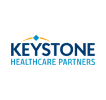In “Harnessing Your Staff’s Informal Networks,” this month’s Harvard Business Review (April 2010), we are given great insight into why teams are different from communities. We also found inspiration in the concept of communities to have a kind of collective presence that could really make a difference in strategy execution. With the economic environment as it has been, we think that informal networks can also help staff and leadership uncover solutions to obstacles or problems that might ordinarily demand more resources yet in a refreshing, informal way.
Let’s start by reiterating the key difference between communities and teams, according to the article’s authors (Richard McDermott and Douglas Archibald) are: 1) The incorporation of the long-view. 2) Require peer collaboration and collective responsibility. 3) Intentional network expansion. 4) Stewardship of unique knowledge that can be pooled for group use.
Related, we see value in creating some time to have your strategic planning team communicate something about their work experience background or even social background that might apply to your organization’s challenges today during the process. Engage with other leaders in your company to talk about perspective of a similar big solution they engineered, or the learning of the last failure in a related realm. If your competitive position allows for it, source external sources within your profession that might provide some common insight. (Ie. Separate city engineers sharing information.)
The point is to extrapolate and pool the intellect you have access to, and even expand your collaboration reach into new networks wherever possible. Steer your network to serve the larger good. Then, get your organization’s leadership to formally recognize its existence and value, while being sure to create a protocol in which leadership enjoys updates from your community’s findings. This is how the great insights can formally make their way back into organizational processes, perhaps even creating better quality decisions than most individual experts acting alone can make.
Finally, a few preconditions to make sure your community’s mass collaboration is the best it can be: 1) Diversify: Make sure you source a varied group of folks, that of different age, race, education track. 2) Decentralize: People with general and specific knowledge can contribute. 3) Effective Aggregation: Create shared manners in which information is gathered and how it feeds into the “collective mind”. 4) Ensure Independence: Take the stress out of this shared situation, and eliminate the pressure to confirm. Not only should you ensure independence, you should use your community as a way to celebrate it through sharing!
Strategy Check: Individual intellects, like departments, can experience the silo-effect: Remember to tap into the unique perspectives all around you.











